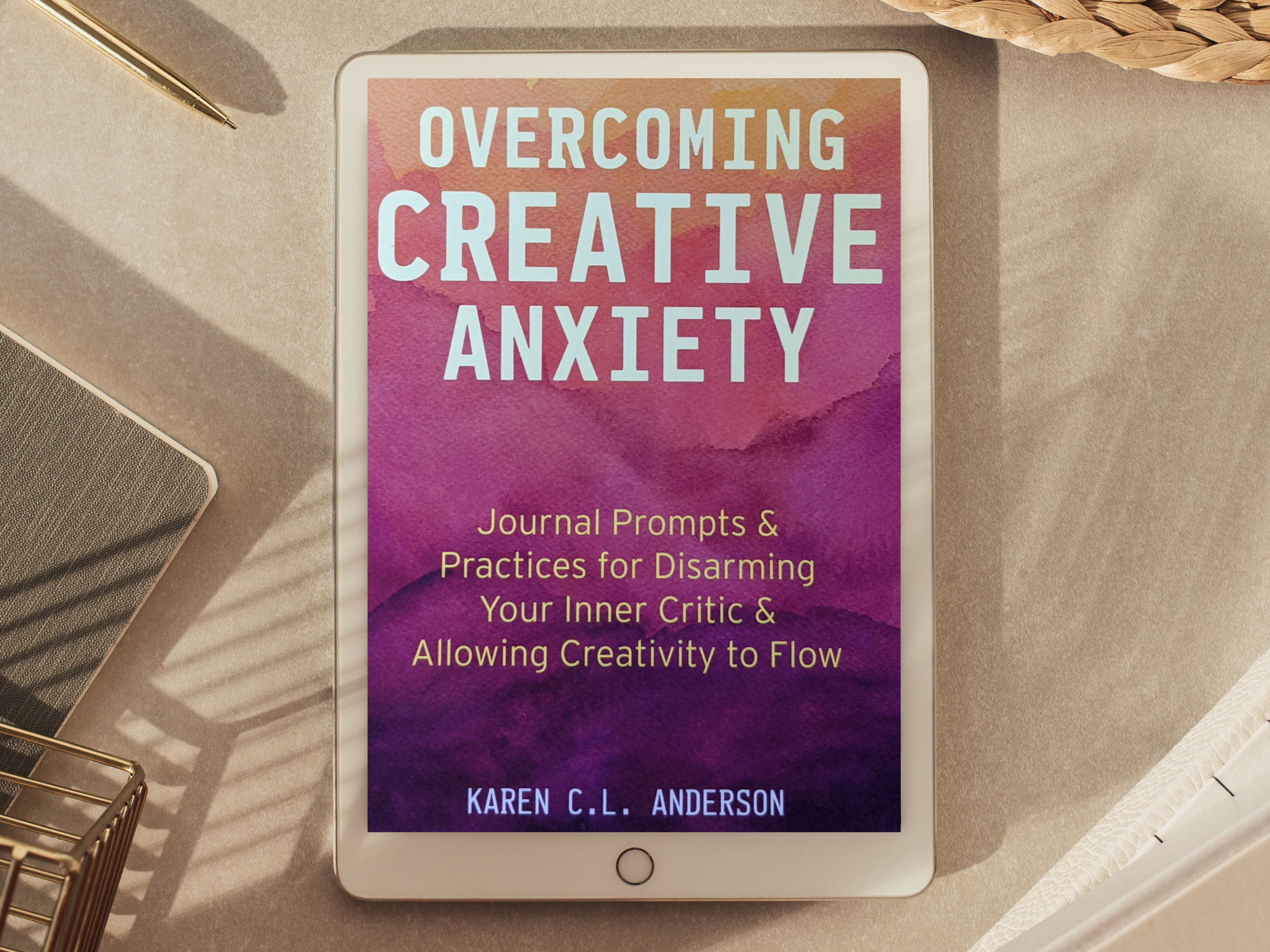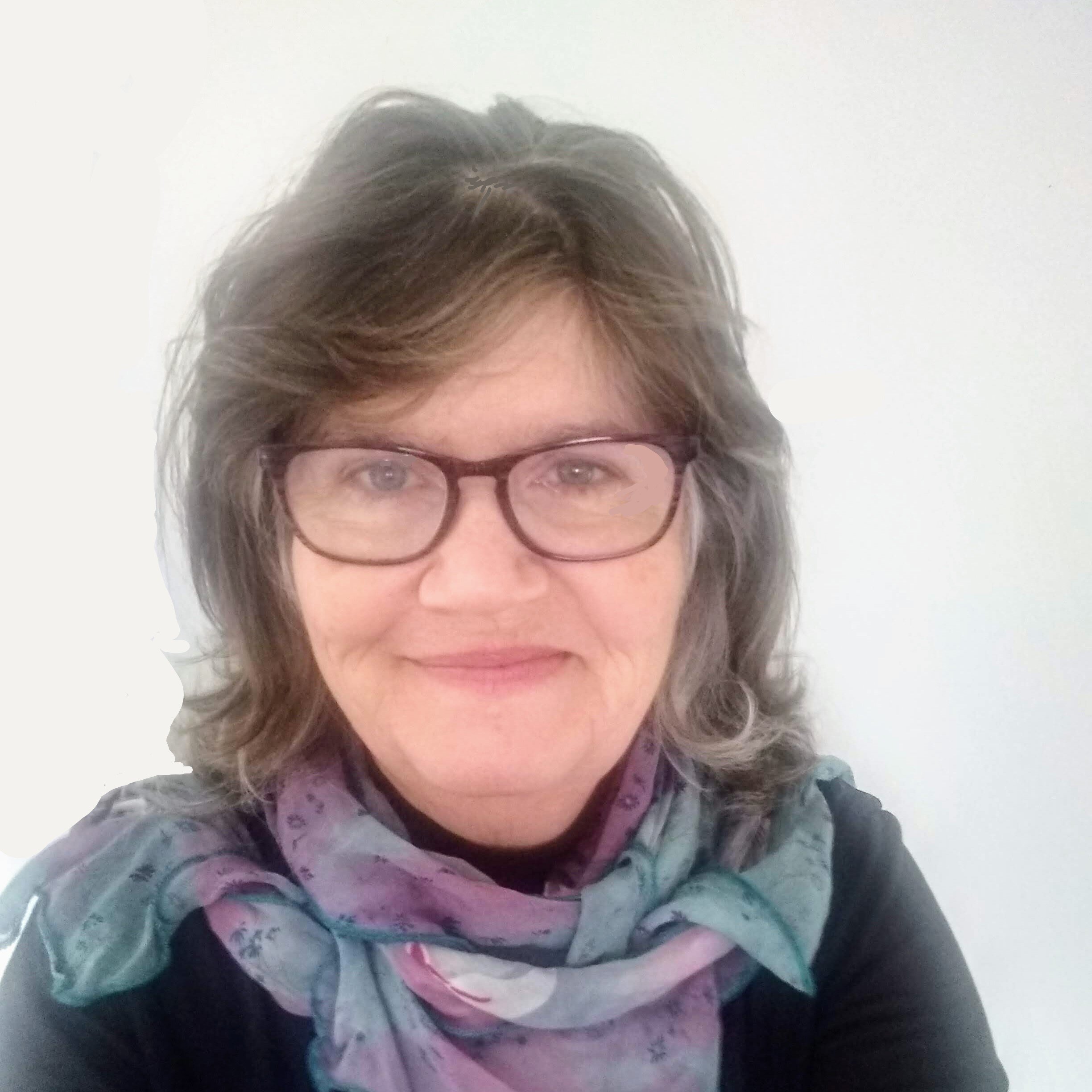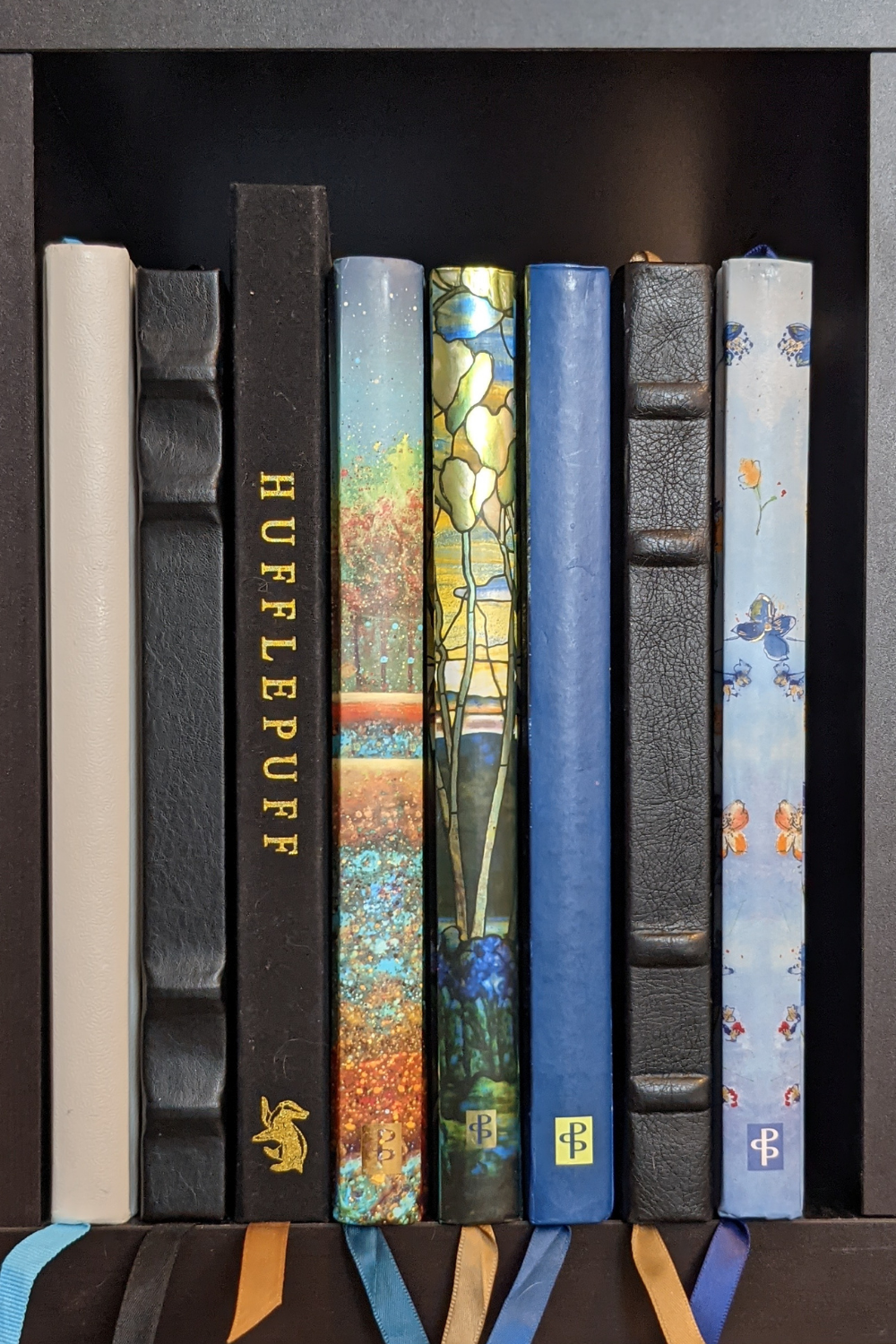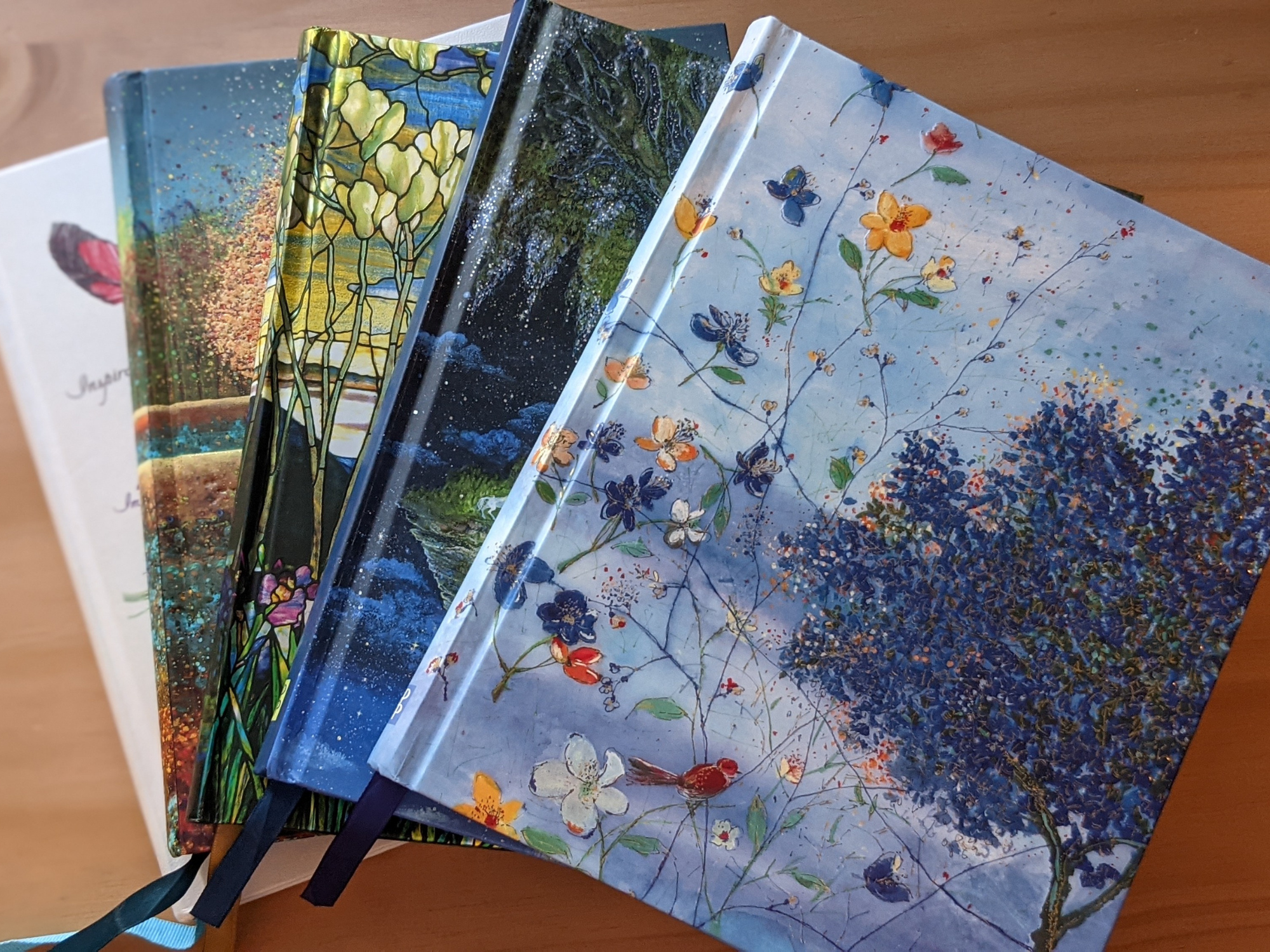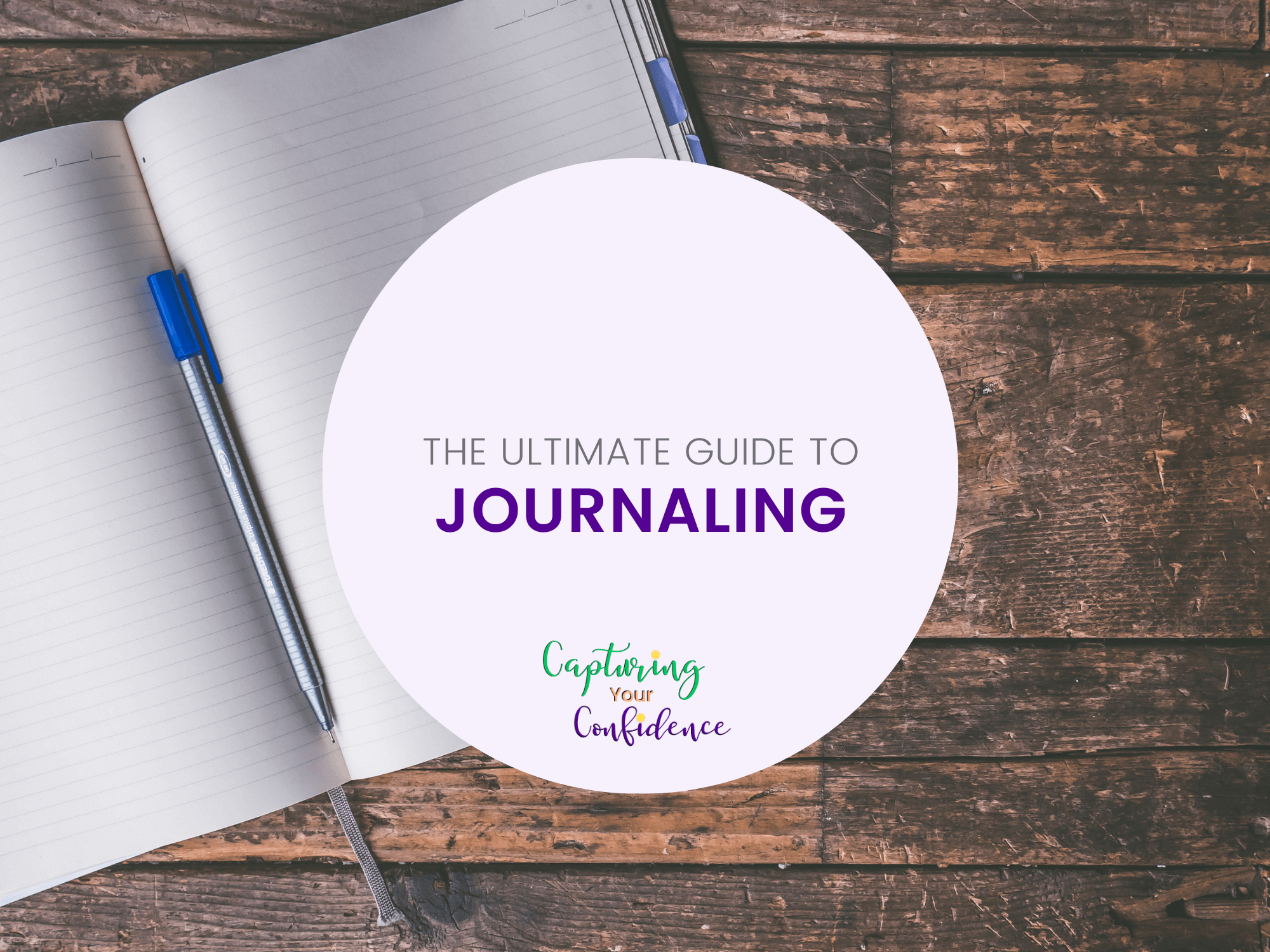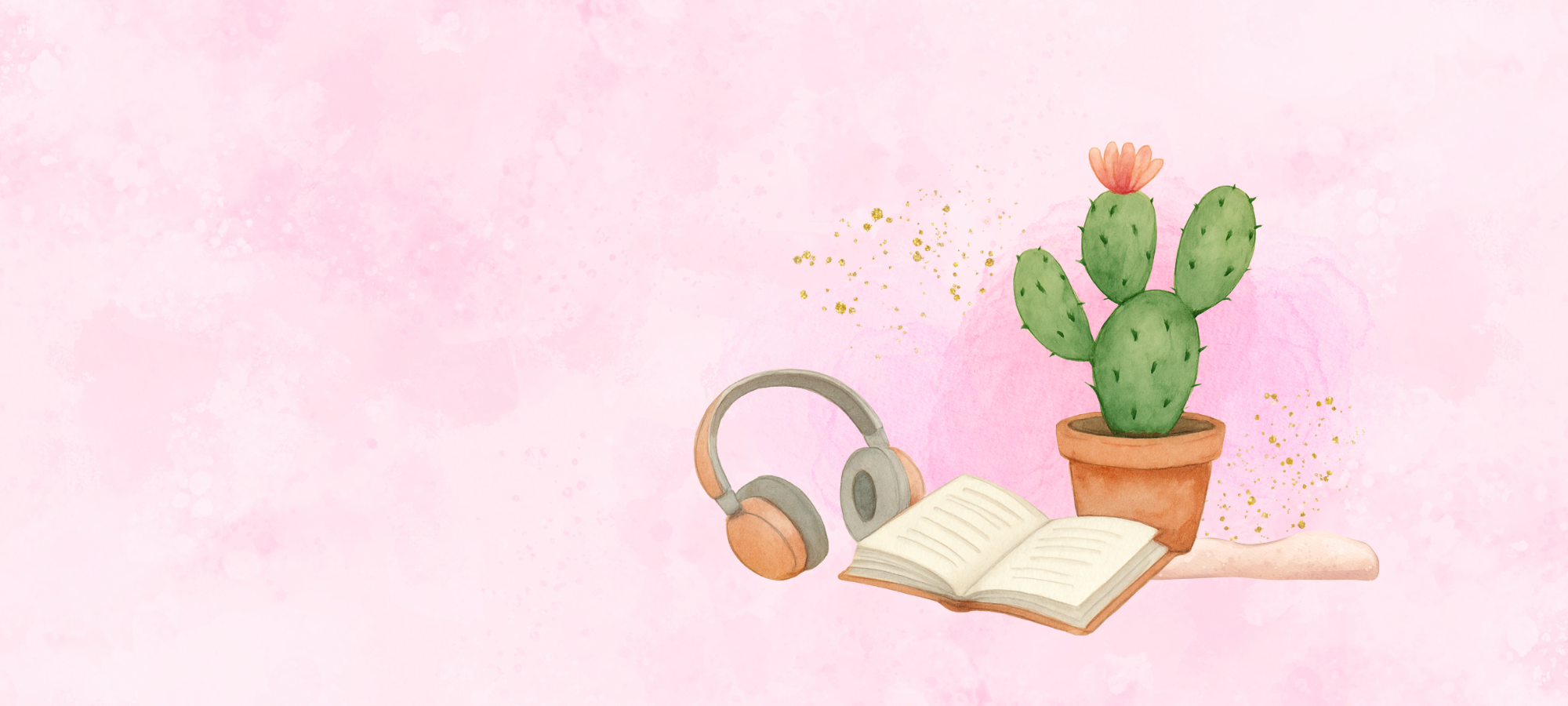
Blog
Don’t Buy Another Journal Until You Read About These
Rather than buy another blank journal you probably won’t use (even though it’s beeeeautiful) check these journals out first. Some are for poetry, some are for writers, and some are for lists! There’s something for everyone, and each could be your next creative best friend.
NOTE: This blog contains affiliate links. If you click through and make a purchase, I will earn a small commission at no extra cost to you.
I’m a huge fan of journaling. I do it every day - my Morning Pages - and there are so many benefits.
That being said, it’s not always easy to just sit down and write, especially when you have all the feelings! (If you need help getting started, check this out.)
So, rather than buy another blank journal you probably won’t use (even though it’s beeeeautiful) check these journals out first. Some are for poetry, some are for writers, and some are for lists! There’s something for everyone, and each could be your next creative best friend.
Instant Poetry
What It Is
A journal for lazy (or new) poets who want to make magic with their words but feel like poetry just “isn’t their thing.” With this fun fill in the blank poetry journal, maybe you’ll become the poet you’ve dreamed about being!
Where Can You Get It?
Why it’s Great for Writers
I’m not a poet, and I honestly never have been. That being said, the idea of poetry fascinates me! I couldn’t resist this fun fill in the blank poetry journal, and I think it’s a great way for writers to think about words differently - and poetry!
“Immature poets imitate; mature poets steal.”
Overcoming Creative Anxiety by Karen C.L. Anderson
Words from the Author
Karen C.L. Anderson
“There are four things I hope readers take away from the prompts and practices in my book:
#1 Creativity is your birthright...it's not something that some people have and others don't.
#2 You are creating in every given moment.
#3 Intentional creativity happens when you wield your thoughts and feelings on purpose.
#4 Working with your nervous system increases your ability to hold uncomfortable feelings while at the same time mitigates creative anxiety.”
What it Is
This guided journal walks readers through meeting and “disarming” their inner critic. It also introduces the inner advocate and provides plenty of space for journalers to explore themselves and let their inner creative run wild.
Where Can You Get It?
Why it’s Great for Writers
If you’re a writer, you’ve probably met (or having an ongoing hate/hate relationship with) your inner critic. This journal is a great way to work on your relationship with yourself, your creativity, and your writing.
“Trying to get rid of your inner critic is like trying to get rid of your humanity.”
You Should Be Writing by Brenda Knight & Nita Sweeney
Words from the Authors
“Journaling, especially in the form of freewriting can really help you unleash your full creativity. I cannot recommend journaling highly enough!”
Brenda Knight
Nita Sweeney
"A writer is an apprentice, learning from those who have gone before. We watch and listen, read and mimic, try, fail, and succeed, until we make the craft our own. In You Should Be Writing Brenda Knight and I built a structure for writers to learn from the goddesses, gods, and lesser known greats of writing. Each blank page, topped with a quote of instruction or inspiration, invites the writer to practice in a safe space, with the support of experts who, in time, become her colleagues and peers."
What it Is
This journal is a collection of inspiring quotes just for writers. The quotes illustrate all aspects of writing, from storytelling to craft to writing as medicine. A welcoming place to get reenergized and excited to write.
Where Can You Get It?
Why it’s Great for Writers
Aside from the fact that the journal is made for writers, I’ve always found a good quote can really help my creativity and I think it will do the same for you.
“Every form of art can provide sustenance to writers. Be open to it all. Take it in. See it. Let it feed you, inspire you, and shape your work. Let it fill your creative well and move you to share your stories on the page.”
A little sunshine and a little rain by Sabina Laura
Words from the Author
“The journal gives readers inspiration to write poetry, while encouraging them to find their own voice and express themselves. The journal is a way of helping the reader let go of any expectations they might have and just give poetry a go!”
Sabina Laura
What it Is
This journal helps inspire and gently guide readers to write their own poetry based on themes and ideas.
Where Can You Get It?
Why it’s Great for Writers
Besides the fact that this journal is physically beautiful, it’s also full of beautiful words and imagery that are sure to help you find your prettiest words and get them onto the page, even if you “don’t really write” poetry (like me).
“i have been
so afraid of
letting the light in
that i have forgotten
how to dream
with my eyes open”
The Checklist Book by Alexandra Franzen
Words from the Author
Alexandra Franzen
“This isn’t complicated stuff. It’s pretty simple. Consider what matters strongly to you. Then, plan your day accordingly. It’s simple yet difficult, because often, we forget to slow down and actually do it. By creating a daily checklist habit, this gives you an opportunity to do this every day.”
What it Is
This book technically isn’t a journal…BUT, it has lots of sage advice and lots of pages to make lists of your own using the new checklist methodology you read about.
Where Can You Get It?
Why it’s Great for Writers
Making lists is always a great way to organize yourself, but for writers it’s also another way to use words and be creative. Plus, it really will help that procrastination we all suffer from.
“Above all, trust your hut (heart + gut). Breathe. Keep it simple. Make a checklist.”
Why I Write Morning Pages Every Day
One of the questions I get asked most frequently is whether or not I journal. And if you would have asked me a couple of years ago, the answer would have been no! I mean, maybe occasionally, but not as a regular habit. These days, I’m an avid journaler. I’m hooked. Only I don’t call it “daily journaling,” I call it “Morning Pages.”
NOTE: This blog contains affiliate links. If you click through and make a purchase, I will earn a small commission at no extra cost to you.
One of the questions I get asked most frequently is whether or not I journal. And if you would have asked me a couple of years ago, the answer would have been no! I mean, maybe occasionally, but not as a regular habit.
These days, I’m an avid journaler. I’m hooked.
Only I don’t call it “daily journaling,” I call it “Morning Pages.”
What are Morning Pages?
The term morning pages comes from Julia Cameron’s The Artist’s Way. It’s an 8 week creativity course that has a book and workbook you read and complete. I have yet to complete it, because at the time when I bought it, I was in a self-help CRAZE.
If you’ve been around for a little while, you might have seen my end of year reflection blog for 2020, in which I listed the insane number of courses I purchased last year when I was furloughed and later laid off from my job due to the pandemic. It was also during this time that I officially registered my business and began to be fully self-employed for the first time.
During this hectic time, I did begin The Artist’s Way, and what struck me the most was this idea of writing every morning about whatever you feel like. Whatever you’re thinking and feeling and wanting and hating. Anything and everything that comes to mind. It’s essentially another term, and in my opinion a better word, for free writing.
So when I say I’m going to do my Morning Pages, I go into my office (or somewhere that has a table surface) and write my 3 pages for the day of whatever I think of.
The catch? I don’t stop writing. I don’t “collect” my thoughts, and I don’t stop to organize them either - they just get onto the page in whatever order they get from my brain to my hand.
You might also be thinking that 3 pages is a lot. And, for some people it might be! I tried the recommended amount when I first started because I knew it would stretch me, although if you’ve met me you probably know that I have about that many thoughts going at any one time, so it’s really just writing them all down on a daily basis that’s the challenge.
I’ll also point out that my 3 pages are not standard paper size 8.5 x 11”. I write them in a journal that’s about 6” x 8” give or take a quarter inch. My favorite brand is Peter Pauper journals, and I fill one up about every 6 weeks. It’s a nice incentive to keep writing when I know I get to pick a pretty new journal.
So that’s it! Those are Morning Pages.
Why I Write Morning Pages Every Day
I write Morning Pages every day because I like it. Well, that and it’s had some amazing benefits that I just can’t get enough of.
It used to be hard for me to commit to writing every day, even as a writer - ironic, right? These days, I find that I actually can tell a difference in the entire day when I accidentally skip Morning Pages or do them later in the day.
First and foremost, Morning Pages get me writing. It might not be a section of my novel, or a paid client article, or a blog. But they’re my words on the page! And it’s glorious when you can flip through them and see all the words you had in your head living neatly on the page in brightly colored ink.
They also get me thinking. I don’t know if you have this trouble, but sometimes I get so far into my own head that it’s hard to think clearly about anything, let alone something that’s supposed to be “good.”
Having time to just write freely in the morning allows me space to think about whatever I want, but also gives me space to think about things I can’t get away from.
It’s a great space for problem-solving! Just the other day I made this great discovery about my business and I was SUPER pumped about it...until I realized that it was so different from what I’ve been working on that I kind of went into panic mode. Like…a business identity crisis.
Thankfully, when I did Morning Pages that day, I was able to take time to think through those troubling thoughts (that actually weren’t that different from what I’m doing, they just felt like it at the time). Then, because I was able to clarify my fears, I could express them to someone else who kindly talked through it with me. Problem solved!
Clearly, doing Morning Pages offers me an unprecedented opportunity to dump all of my unwieldy emotions onto the page before they begin to affect others around me...well, usually at least. If I’m angry, it’s a safe place to rant. If I’m sad or anxious, I’m free to wallow for a little while and figure it out before I get assistance or move on with the day.
When I began doing my Pages every day last April, we were firmly ensconced in pandemic lockdown. As in, we could barely even go to the grocery store. So, finding alone time was a valuable asset to me in a small house with my husband and dog when we were together 24/7. I treasure time alone with my thoughts, and although I love my husband and my boys, there are just some things you don’t say to other people!
Looking back now, I’m also glad to have a record of the whole year - or, most of it at least. It’s really amazing to me the changes I’ve seen and, quite honestly, the sh*t we went through. I mean, everyone’s got their stuff, right? But seeing in on the page really does give a different perspective. In my writing and business, I’ve also been able to identify key moments, almost down to the day, where huge mindset shifts happened, which is pretty neat.
Journaling really offers the unique chance to record the “right now” in a way that most other forms of expression don’t quite match up to.
Plus, it’s a pretty sweet perk that I get to regularly pick out a pretty new journal to write in.
I’m not sure what I’ll do when I run out of designs with my favorite journal company (which, by the way, is actually pretty affordable!), but until then, I enjoy my trips to Barnes & Noble, or a good look around Amazon.
I’m sure the list of Morning Pages benefits could be longer, after all, I’m a lifelong devotee now, but those are my favorites.
Space to think on paper is invaluable to writers, and I highly recommend it, even if you don’t want to do 3 pages worth!
My challenge to you is to do Morning Pages for a week (including the weekend) and see how you feel afterward.
Have you tried Morning Pages? How did it go? Do you do another form of daily journaling that helps you as much as Morning Pages helps me? I’d love to hear about your experiences and recommendations! Find me on social media or drop a comment below.
The Ultimate Guide to Journaling
Chances are, if you liked writing or showed an interest at all when you were young, someone gave you a journal at one point...When I was young, I would get all excited about a new journal. I would use it for a few writing sessions, then lose interest...Now I journal every day, and it has changed my life.
UPDATED DECEMBER 2020
Chances are, if you liked writing or showed an interest at all when you were young, someone gave you a journal at one point. It may have been a pretty notebook, a hardbound “diary,” or, a tiny little notebook that fits about 3 words on the line.
What do you remember about it?
Were you excited? Annoyed? Skeptical, perhaps?
Me too. As someone who has loved writing for as long as I can remember, I had a string of “diaries” when I was young. I specifically remember having a voice-activated password diary - the latest trendy thing in the 2000s. It seemed like every birthday or gift-giving holiday, journals were the gift of choice.
When I was young, I would get all excited about a new journal. I would use it for a few writing sessions, then lose interest. Sometimes I would be paranoid that my diary was read by someone (and sometimes it was). Or, I didn’t want to spend hours writing down all my thoughts at one time, because that’s what journaling was to me then: hours of writing down every little feeling and detail.
When I went away to college, I found comfort in keeping a journal on a regular basis. I didn’t write every day, because I tended to write quite extensively, but every week or two I would write about what was important and happening in my life. It was during this hectic time that I figured out how incredibly helpful it is to have a journal.
Now I journal every day, and it has changed my life.
What is Journaling?
Before we get to the juicy stuff, though, let’s make sure we’re on the same page about what a journal actually is. A journal is, “a daily record of news and events of a personal nature; a diary.” Essentially, you write every day about what’s happening around you in a private place.
Many times, this strict definition of journal is what discourages people from journaling. The “daily” act of writing or keeping a “diary” seems like quite a big time commitment, especially if you’re busy, as most of us are.
This was definitely off-putting for me because:
When I was writing in a “diary” I poured out my soul for long periods of time. I’m talking a couple of hours at a time, so how could I expect to do that every day?
Because I wrote so much for so long, I was drained, so writing every day seemed like an unattainable goal.
I’ve never liked the idea of a “diary” because it seems like telling people about a diary encourages them to ask about things you obviously want to keep private. It also seems like something you might have to “hide” - at least that’s what we learn about keeping a diary as kids.
When I talk about the benefits of journaling and how helpful it’s been in my own life, understand that I don’t commit to writing 10 pages a day of raw emotional content in a diary.
Every morning I free write 3 pages - a practice called Morning Pages (read more about that here) - and I log my day at the end of the day. For me, journaling is one of the biggest ways I do self-care, so I do indulge in nice journals, although not super expensive ones. I love Peter Pauper Press journals like this one.
7 Benefits of Journaling
While it’s one thing for me to say journaling has helped me, it’s another thing to “prove” it, right? After all, just because something works for me doesn’t mean it will work for you.
BUT
Did you know there are research-backed benefits to journaling? People have been studying journaling for years and it DOES have some pretty great benefits as a practice.
Journaling helps you have:
And these are just some benefits! Science also supports these claims?
Types of Journals
Free writing isn’t the only way to journal - there are plenty of other options! This might seem like it makes things more complicated, but it’s actually really great for you because it means that you are not confined to the traditional idea of keeping a journal if that doesn’t appeal to you.
Here are some types of journaling you could choose from:
Self-Care Journal - working through life’s difficulties and your own feelings
Writing journal - if you are a writer and want all of your thoughts collected in one place
Gratitude journal - a log of things you are grateful for
Travel journal - a written account of your travels
Dream journal - a written account of your dreams and what you think they mean
Bullet journal - an all-in-one organizational system that can be a journal plus a lot more!
A journal can and should be what you want and need it to be. Learning what works for me has been a journey. I used to do personal journaling in bursts. I would write 5-10 pages at a time, but only once or twice a month. Now, I write 3 pages every morning and not only is it easier because I have a limit to the time and amount, but I’ve come to rely on it as a way to clear my head before the start of the day.
In the morning I do free writing, but I also list 3-5 things I’m grateful for and 3 things I must get done during the day. Before bed, I log my day in the Pixels app and I list 10 things I’m grateful for. If I have something special that I took a picture of, I put it in the journey app for safe-keeping. It’s awesome! It also doesn’t take as long as you might think - I spend maybe a half hour in the morning and less than 10 minutes at night.
How to Begin Journaling
Although it may seem daunting, journaling doesn’t have to be complicated or all-consuming. There are 4 simple steps that can get you started journaling today!
Choose how to journal. Consider what you want to get out of journaling: are you anxious? Do you need to unload your emotions in a private place? Are you really busy and need to keep a log of what’s going on around you? Do you just want someone to talk to who won’t react to what you’re saying? Once you know what you want from your new journaling habit, it will be easier to figure out the “how to do it” part.
Decide what medium to write it. Do you like the traditional feeling of pen on paper? Or do you love technology and want to keep a digital journal? There are awesome tools available for both options. Do some research and see what’s out there that you like. I also have some options below that I love and I think you might, too!
Acquire whatever tool you want to use to journal. Is this a regular notebook? A fancy, bound journal? A daily app with reminders?
Begin writing. You’ve got this! It’s a process to get used to writing every day, but if you make the effort to take time to do it, journaling will begin to become a very positive habit in your life.
Journaling Tools
I didn’t start out as someone who loves journaling, but I sure am now! Along the way, I’ve found some pretty incredible FREE tools that I still use today. Check them out - I think you’ll like them, too.
Pixels - a log to keep your emotions every day. You select a color correlating to your mood and make notes about it every day. You can be as detailed (or not) as you want, and if you don’t want to leave a comment and just a color, you can do that too! Many things, like the month or year view and colors are customizable.
On my app, I use yellow for the best days, orange for good days, green for fine days, purple for not very good days, and red for really bad days.
Journey - a password protected digital diary (don’t worry, it’s not voice activated) that allows you to free write the same way you would on any other document - with images, gifs, emojis, etc. Plus, you can add voice recordings & attachments! You have the option to back it up, and it will keep all of your data safe and sound.
I love this app because I started using it in January 2017, and I can access all of my entries since then. My favorite is adding everyday pictures because then it reminds me of things I might have forgotten. It will also send reminders when you have an anniversary of an entry with the option to “look back” at it. There is a paid version, which is like $6.99, but I felt like that was worth it for me because I have so many entries from over the years. It’s definitely not a requirement and there’s no pressure to upgrade while using the app.
Stop Panic and Anxiety - This is one of the best meditation apps I have found to date. I typically use the relaxation audio recordings when I’m going to sleep. The audios range from about 15-25 minutes, and they guide you with how to breathe and everything.
There is also the option to use the cognitive diary function. You can choose to make the app password protected, too, and set up a reminder so you don’t forget. It doesn’t look the prettiest, but it’s awesome just the same!
BONUS: None of these apps cause ads, and only use push notifications if you want them to.
Journaling Considerations
You might be thinking “Well, I’m just not into it. I’ve done it before & it just doesn’t work for me.”
That’s perfectly fine! Journaling is not for everyone. For years I’ve been a proponent, and that’s partly because I love words so much. I realize, though, that words may not have the same effect on others as they do on me.
Before you give up entirely, though, consider:
You don’t have to do the “diary” type of journaling. Whether it’s a matter of time, or whether you live with too many people for it to actually be private, there are other ways to journal and express yourself.
Just because you try one type of journaling doesn’t mean you have to commit. You can try as many types of journaling as interest you, but just because you try it doesn’t mean you’ll do that same activity the rest of your life. Want to be more satisfied with your life? Focus on finding and writing down one thing you are grateful for every day. Bam! You have yourself a gratitude journal, even if you don’t call it that.
You can always go digital - for free - if you aren’t feeling the pen and paper journaling concept. Plus, if you go digital, you can password protect your thoughts if you feel like you need to.
My challenge to you is to read a little about each type of journal and then try one out for a month!
What kinds of journals have you written? Heard of? Thought about trying? I would love to hear about your trials and triumphs! Find me on social media or leave a comment below.
Let’s chat because you, my friend, are on your way to great writing.





